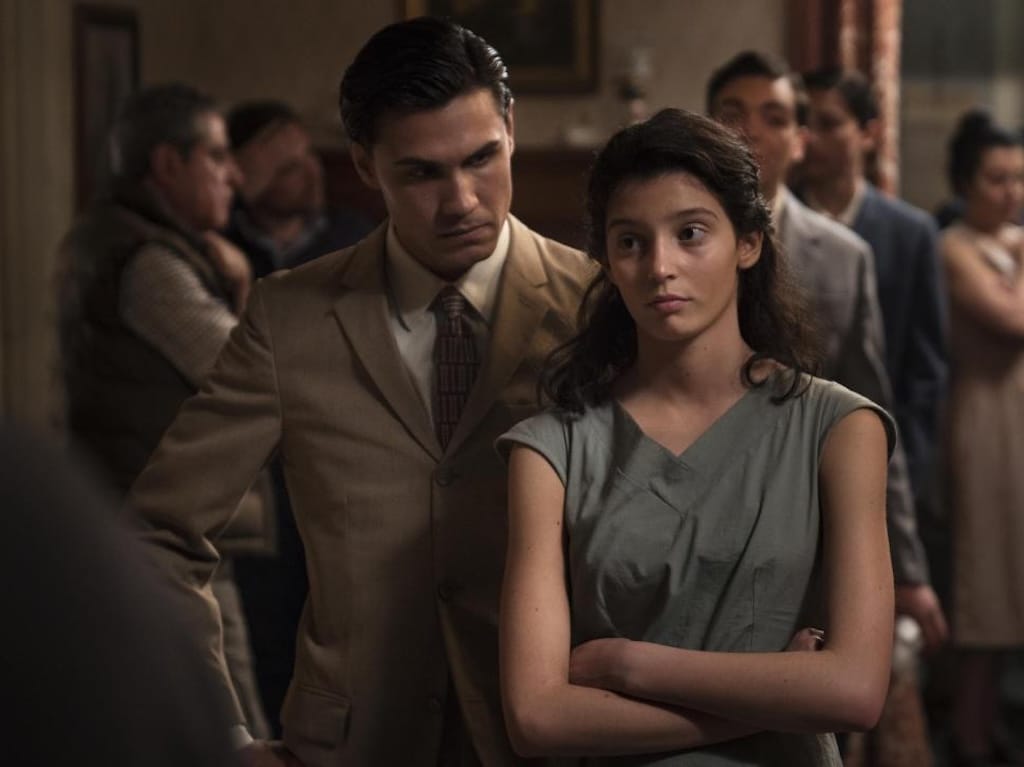Quick summary:
If the neighborhood politics weren't clear before, they come into stark focus by the end of this episode. Over the course of two parties, the atmosphere becomes increasingly dire, especially for Lila. Initially, it seems like the rione's younger generation is willing to move forward without holding onto their parents' grudges. When the Pelusos (alleged murderer's family) and Carraccis (victim's family) both show up at Gigliola's, Pasquale diffuses the tension with a charming solo dance to Mina's "Nessuno." In turn, Stefano invites them to his New Year's party, telling Lila, "New year, new life." This newfound peace between the families could have marked a turning point where petty vendettas take a backseat to growth and prosperity; unfortunately, the Solaras are not onboard with this change and assert their dominance with gunfire during the midnight fireworks display. Lila watches Rino (Gennaro De Stefano) get sucked into this violence, screaming insults with such verve that he's oblivious to the danger. In the midst of this chaos, she experiences her first bout of dissolving margins (smarginatura).
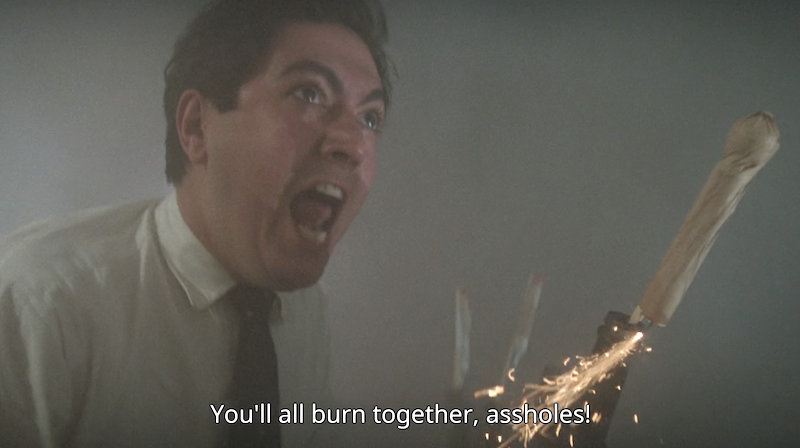
Corresponding book chapters:
"Dissolving Boundaries" goes from Chapter 14 through Chapter 22. We're now halfway through the book and S1 of the show.
Notable choice (complimentary):
This is the first standout episode of S1 and after watching, I knew I would continue with the show even if it went downhill (don't worry: it doesn't). Gigliola's party is a master class in building tension with the perfect mix of voiceover, close-up shots of different characters watching each other, side conversations, and brilliantly blocked/choreographed dance sequences. The scene with Lila and Marcello never made much sense to me in the book. How could she be totally oblivious to his presence after recently holding a knife to his throat? Watching it all unfold and seeing Lila's exuberance makes it more believable, along with the decision to have Marcello replace Pasquale as her partner when her back is turned.
Notable choice (derogatory):
The casting for Marcello (Elvis Esposito) and Stefano (Giovanni Amura) should have been switched. Amura and Alessio Gallo (Michele) look more like brothers to me and I'm always thrown off when they're in a scene together. They both have thicker builds and a forced geniality that I immediately distrust. It's not hard to picture them flying off the handle and beating someone to death. Esposito has more of a lithe, pretty boy model build that brings to mind a life of grocery store schmoozing. Ferrante describes him as "handsome, with the manners of a prince," which is more in line with Esposito's reserved disposition.
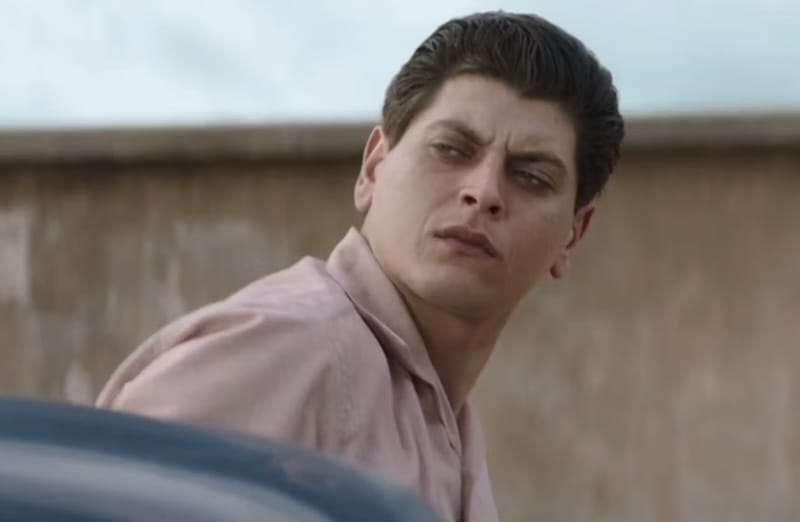
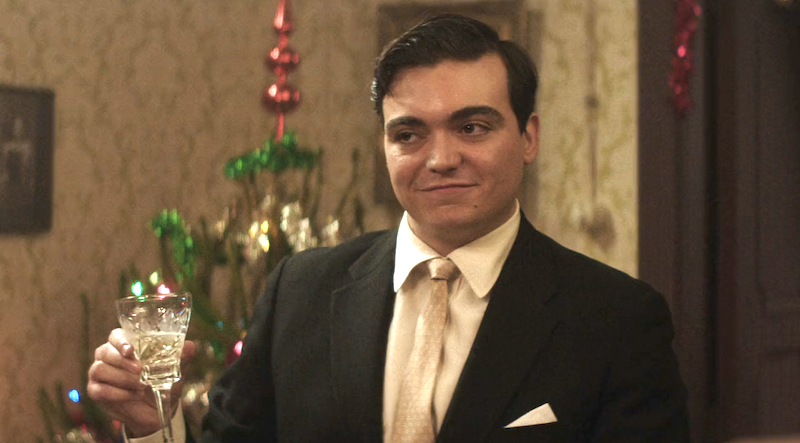
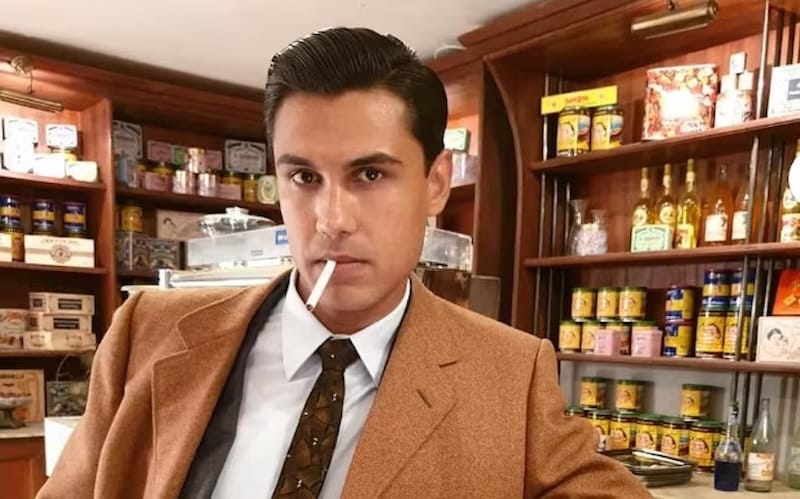
From left to right: Michele, Stefano, and Marcello.
Thoughts:
"Hell is a Teenage Girl" is a solid alternate title for this episode, which features four men vying for Lila's affection while Lenù skulks in the corner. No matter what Lenù achieves — independence beyond the confines of the neighborhood, success in school — she'll always play second fiddle. In a devastating early scene, Lila casually reveals that she's been learning Greek for fun. Lenù, who actually needs to learn Greek for high school, hasn't even begun studying. Ferrante writes, "Would [Lila] always do the things I was supposed to do, before and better than me? She eluded me when I followed her and meanwhile stayed close on my heels in order to pass me by?" A mature person with better communication skills would express these feelings directly instead of writing about them with bitterness after decades have passed, but alas... Lenù is not that bitch, even at 60+ years old.
There's an undeniable competitiveness to the friendship, but it's rooted in a deep love for each other and a fear of being left behind. When Lenù describes her trip to the city with her father, Lila quickly changes the subject to Gigliola's party. Lenù is hurt by this and doesn't understand the lack of engagement. In the novel, she concludes that Lila's disinterest isn't malicious, writing, "My story, for her, was at that moment only a collection of useless signals from useless space. She would be concerned with those spaces only if she had the opportunity to go there." It's also possible that Lila doesn't like being reminded of how significantly their lives have diverged. Lenù's education has taken her out of the neighborhood, exposing her to new people and ideas that Lila will never experience. Lenù often views Lila as someone who gets off on continuously besting her, but it's just as possible that Lila acts out of her own insecurities. If she keeps studying, she'll stay relevant in Lenù's life.
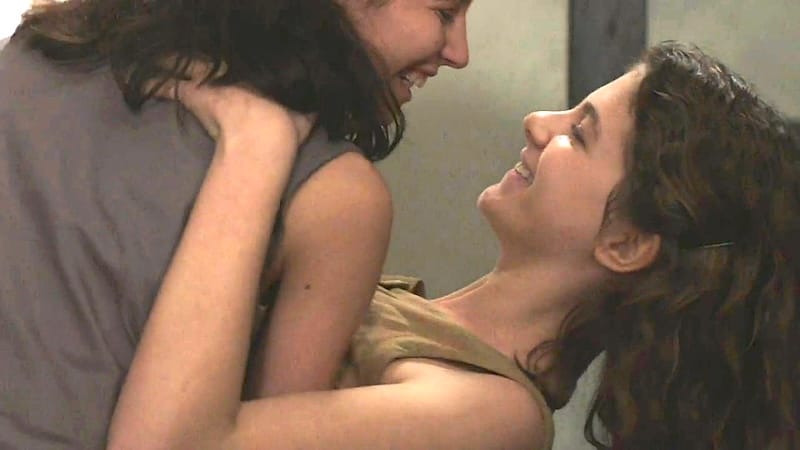
Lenù has her own anxiety about growing apart from Lila, who's become a hot commodity amongst every dude with a pulse. At Gigliola's name day, the revelers watch an uncharacteristically joyful Lila dance with Enzo, Pasquale, and, of all fucking people, Marcello. Why she cuts a rug with someone she loathes is a mystery. The way the show plays it, she doesn't identify her partner as Marcello until the dance is in full swing and at that point, she's having too much fun to stop. From Lila's perspective, she's simply dancing; the partner is irrelevant. She knows the Solaras are bad people but in this moment, she doesn't have enough context to comprehend how vulnerable she's made herself by showing even a shred of interest in Marcello.
Once they've left Gigliola's, Pasquale explains that the Solaras' money, along with the success of Stefano Carracci's grocery store, comes from the black market. The Solaras aren't just standard douchebags, they're fascists with ties to the Camorra who will lie, cheat, steal, and manipulate to get what they want. Case in point: they're the ones responsible for Pasquale's ousting from the party. Marcello wanted to dance with Lila, so he had Pasquale, her original partner, removed by Signora Spagnuolo. By dancing with Marcello, Lila has opened herself up to danger. If Marcello decides she's worth pursuing, he'll do anything to win her affections. As Lila realizes that she may have walked right into a trap, she begins to cry. Any control she thought she had was an illusion.
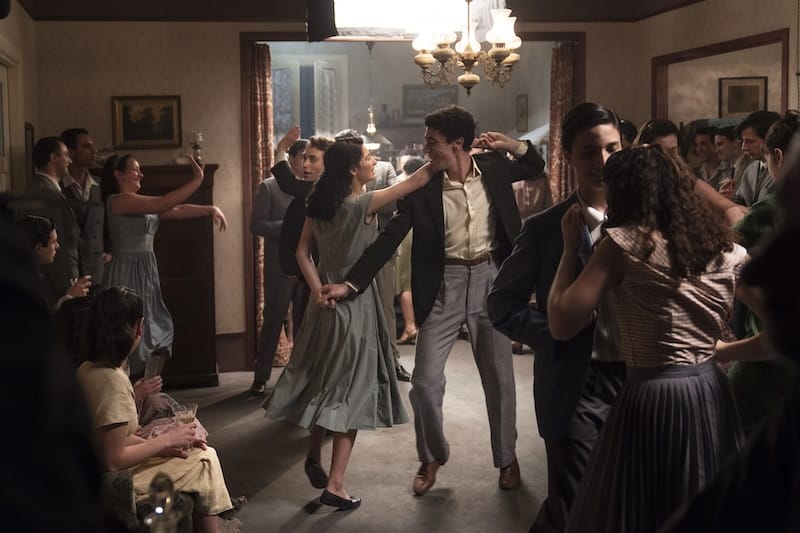
The most unsettling part of this post-party scene is Lenù's reaction to it. Per usual, she's more fixated on Lila than she is on the sinister neighborhood underpinnings. At the scene's close, her voiceover divulges, "It slowly became clear, not only to me, who had been watching her since we were in first grade, but to everybody that Lila had begun exuding a fluid that was not simply seductive, but also dangerous." This depiction brings to mind a succubus who entices men solely to destroy them. Does Lenù really think Lila has power in this situation? She's a 14-year-old girl who has unwittingly attracted attention from a mobster. Any seductive, dangerous fluid she's exuding is unintentional. Lenù places her friend on such a pedestal that she can't sense she's out of her depth. On one hand, how nice to have a bff who thinks you're constantly playing three-dimensional chess; on the other, what an imbecile.
Even at school, a place far removed from the neighborhood, Lenù can't escape Lila's perceived superiority. After she sees her grade school crush, Nino Sarratore (Francesco Serpico), outside at lunch, she runs home to tell Lila, who instantly stokes her anxiety by saying something spontaneously brilliant about "The Aeneid." Lenù thinks, "Nino, if he saw her, would have been entranced by her," once again elevating her friend to a godlike position (and giving Nino more importance than his ectomorphic ass deserves). Each time Lila threatens to surpass Lenù — whether in romance or education, reality or fantasy — she sparks a motivational fire. By winter break, Lenù has not only impressed her Greek professor, but begun dating the pharmacist's son, Gino (the guy who underpaid her for a tit flash). This dynamic between the girls has been the same since childhood when Lenù, before dropping Nu into the cellar, tells Lila, "What you do, I do." Without Lila nipping at her heels, Lenù might never accomplish anything.
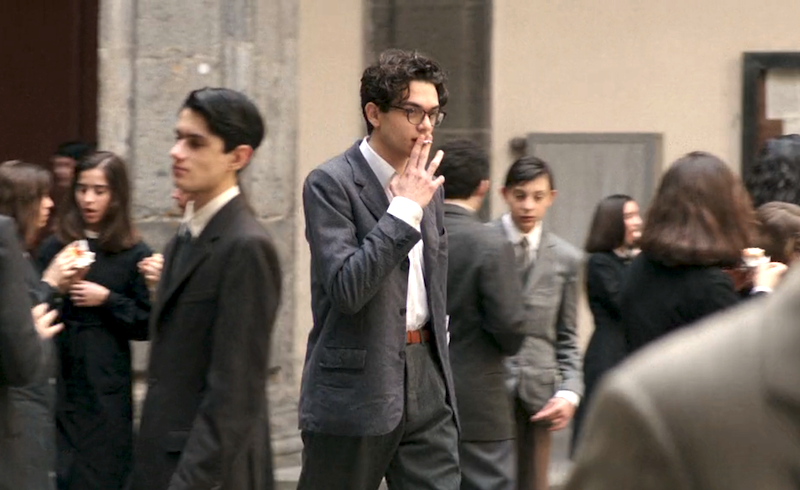
At Stefano's New Year's Eve party, the harsh reality of Lila's situation crystallizes. She's beautiful, brilliant, and cunning; however, she's still a teenage girl with a coterie of powerful suitors and no one to save her. While Lenù worries about acne and looking dumb in school, Lila contends with a future where she's married off to the highest bidder. Everything falls apart for her that night on the terrace when she realizes that Rino, her lifelong protector, cares more about himself than anyone else. From opposite rooftops, the Carraccis and Solaras shoot off fireworks with escalating levels of carelessness. Lila watches in horror as Rino refuses to back down, screaming impotent threats until the Solaras whip out a gun.
Prior to this event, Lila truly believed that Rino was different than the shitty men in the neighborhood. He defended her from bullies, in the neighborhood and at home. Even when he was a jerk to her at the shoe shop, she always revered him. After watching him go off the rails during this pathetic dick-measuring contest, Lila is no longer under the delusion that he is her ally. Rino might fight her battles when it suits his ego, but she'll only ever be a pawn in his quest for wealth and power.
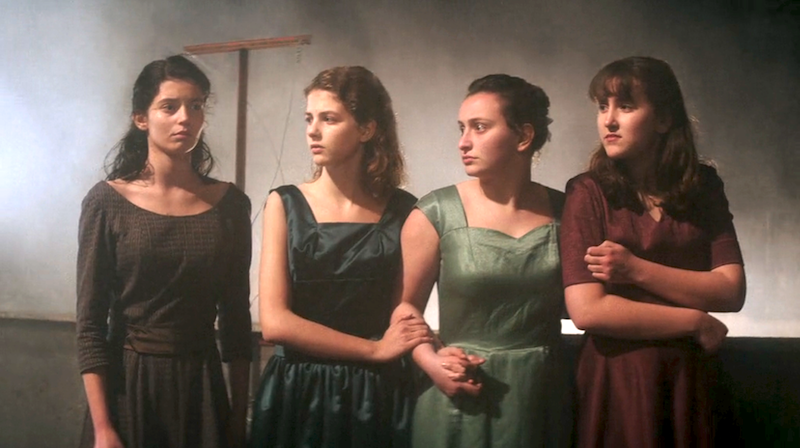
Lila refers to this change in perception — which she'll experience on many occasions — as "dissolving margins" (or boundaries). One of my favorite interpretations of this concept comes from sociologist Sara R Farris:
Dissolving margins is the experience of the known that becomes unknown, of the truthful that becomes false, of the beautiful that becomes ugly, of the familiar that becomes unfamiliar and dangerous. It is the fear of a world that breaks and morphs into monstrous forms. One way to read the notion of dissolving margins is in terms of Lila’s resistance to, and fear of, a world that is changing in front of her eyes. It is Lila’s refusal to accept or to comply with the path to industrialization and phony modernization that Italy is undertaking.
On initial read/watch, it seems like Rino's transformation happens on the micro level, but it's indicative of larger shifts happening throughout post-War II Italy. As the books progress and the girls' lives expand, the personal becomes more overtly political and it's easier to see how Lila's distress stems from an increasingly unjust social order.
Random observations:
- I like that the recaps at the beginning of each episode are simply images set to the score. It's a great way to showcase how much of this story manages to abide by the "show, don't tell" principle of filmmaking despite being a first-person novel adaptation.
- When I'm bummed about getting older, I just think of how much time I wasted on cigarette-smoking Nino Sarratore fuckboy types in my 20s. Would I trade less forehead wrinkles for that level of stupidity? Never.
- This shot is giving "Persona" (1966), "Mulholland Drive" (2001), "Portrait of a Lady on Fire" (2019), and countless other beloved films:
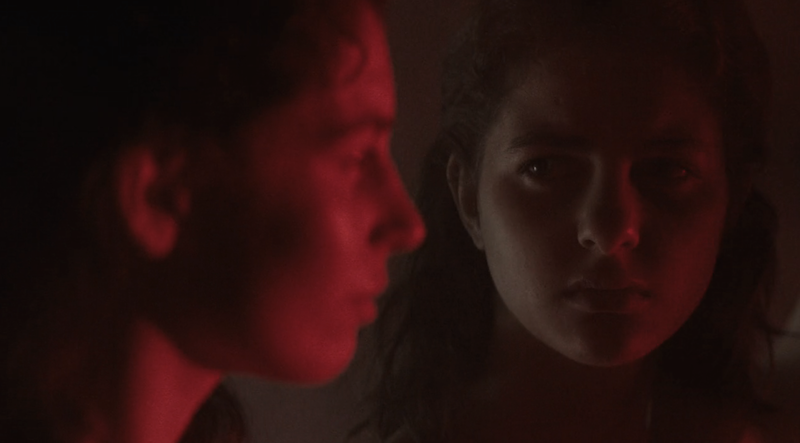
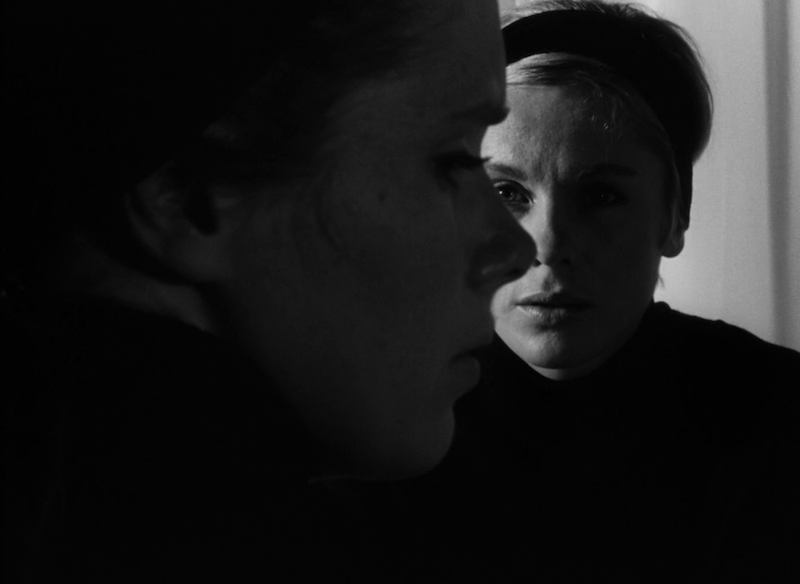
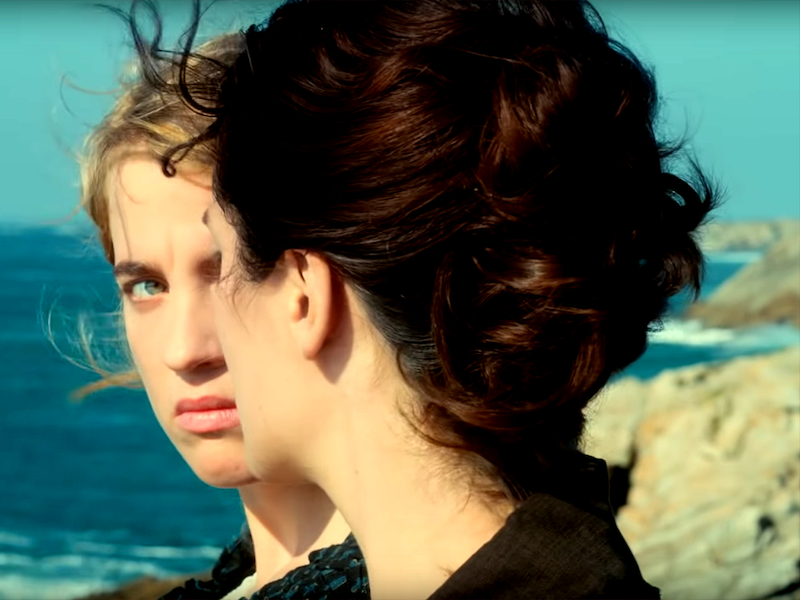
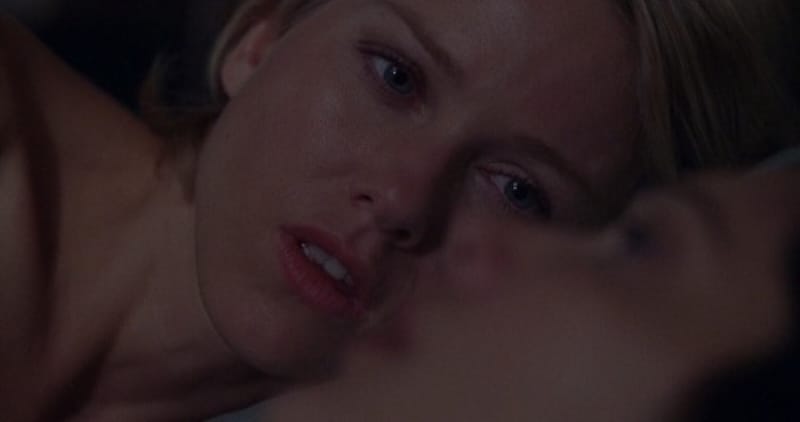
Q U E E R 🩷 S U B T E X T 🌈
- 2025 Rino is the guy bankrupting himself by taking out 340984 credit cards and booking fancy vacations for the sake of Instagram clout. He wants respect more than anything and if he can't buy it with actual money, he'll settle for the illusion of wealth. All this is to say... who the fuck trades a line in Manuela Solara's little red book for some fireworks?
- In an early voiceover that takes place over images of the sea, Lenù's voice switches from adult back to present day. It's one of those instances where the audio from the next scene starts before the image changes but they go together seamlessly. Adult Lenù thinks back on the day she and Lila tried to escape the neighborhood to visit the sea; teen Lenù asks Lila if she remembers. Considering child Lila's sabotage, it's interesting that this memory is tinged with fondness, not anger.
- During a conversation with Saul about "Gossip Girl," he said this, which certainly applies to Lenù and Lila, along with many other media portrayals of female friendship:
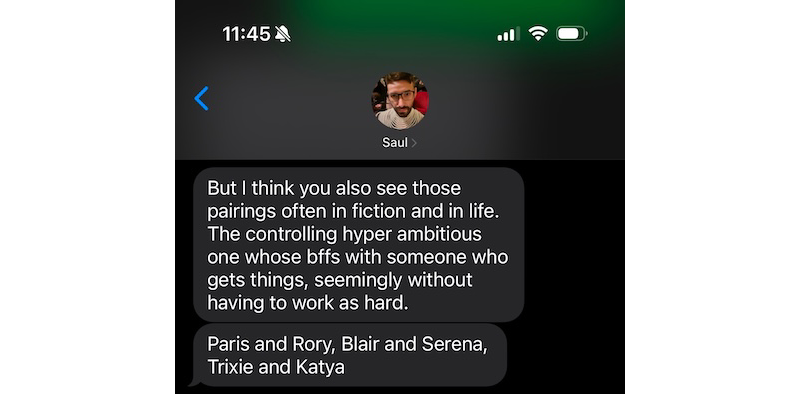
- This article in Columbia's undergraduate philosophy journal raises some intriguing ideas about smarginatura (as it relates to Lila, Lenù, and their relationship), although it doesn't take any of them far enough.
- If you enjoy "My Brilliant Friend" and haven't yet seen Alice Rohrwacher's "La chimera" (2024), please rectify this ASAP. It's one of my favorite films of 2024, second only to Radu Jude's "Do Not Expect Too Much from the End of the World."

